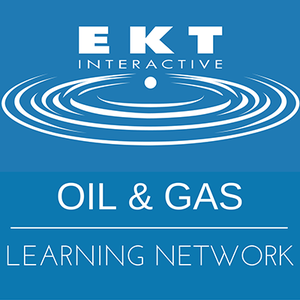
EKT Interactive Oil and Gas Training
EKT Interactive
The next generation in oil and gas training and e-learning.
- 48 minutes 27 secondsApril 2024 Oil Market Analysis – Commodity Research Group
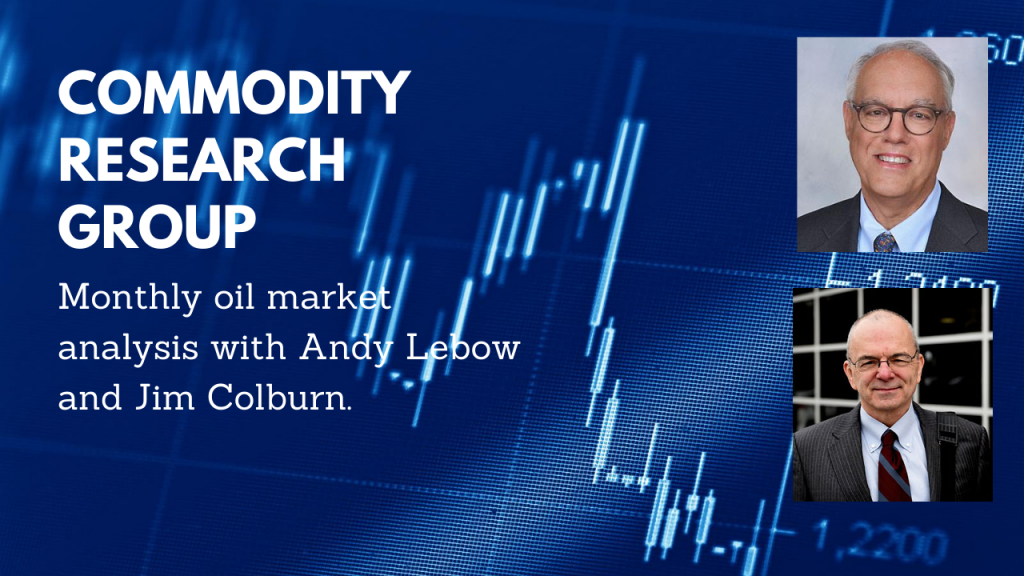
Here is the latest oil market analysis from Commodity Research Group.
These podcast episodes are based on research published in the CRG Monthly Outlook report – a premium research product covering energy, metals, and currencies.
The full report is relied on by hedge funds and trading groups to provide actionable insight into commodity markets and is available on a subscription basis.
Be sure to contact CRG to learn more about their research services.
Contact Commodity Research GroupAbout CRG
Commodity Research Group (CRG) is an independent research consultancy specializing in base and precious metals, as well energy products. The Group provides research and general price analysis for these markets, along with advice to companies seeking to construct hedging strategies.
In this podcast, oil market experts Andrew Lebow and Jim Colburn discuss key fundamental forces driving oil prices in both the futures and options markets.
About the Experts
Andrew Lebow
 Andrew Lebow has been involved in the energy derivative area since 1980. He began his career with Shearson Lehman Brothers where he worked in the initial formulation and marketing of the NYMEX WTI crude contract in 1983 as well as the NYMEX gasoline contract in 1985.
Andrew Lebow has been involved in the energy derivative area since 1980. He began his career with Shearson Lehman Brothers where he worked in the initial formulation and marketing of the NYMEX WTI crude contract in 1983 as well as the NYMEX gasoline contract in 1985.Mr. Lebow has appeared before the State Government of Alaska as well as the State Department of Defense to discuss hedging techniques. Mr. Lebow is also well known as a market analyst and is quoted frequently in the financial press. He has appeared on television on CNBC, NBC, CNN, CBS, and PBS. Mr. Lebow holds a BA from Lafayette College and an MBA from the Kellogg School of Management at Northwestern University.
James Colburn
 Jim Colburn is a futures and options professional with 30 years of wide ranging experience in commodity markets. For much of his career, at Man Financial (1989-2011) and Jefferies LLC (2012-2013), Mr. Colburn worked with major integrated oil companies, hedge funds, pension funds and other entities to develop market hedging and trading strategies.
Jim Colburn is a futures and options professional with 30 years of wide ranging experience in commodity markets. For much of his career, at Man Financial (1989-2011) and Jefferies LLC (2012-2013), Mr. Colburn worked with major integrated oil companies, hedge funds, pension funds and other entities to develop market hedging and trading strategies.He has conducted trading, hedging and risk management workshops in energy markets worldwide.
Mr. Colburn is a published author on options trading, hedging, market making and risk management. In 1986, while at the New York Mercantile Exchange, Mr. Colburn helped develop new markets in energy option contracts by educating the oil industry, banks, floor traders and brokers, worldwide.
Links:
Commodity Research Group Podcast
Sponsors:
EKT Interactive Podcast Network
Energy 101 – eLearning for the Energy Industry
The post April 2024 Oil Market Analysis – Commodity Research Group appeared first on EKT Interactive.
18 April 2024, 12:13 am - 40 minutes 42 secondsFebruary 2024 Oil Market Analysis – Commodity Research Group

Here is the latest oil market analysis from Commodity Research Group.
These podcast episodes are based on research published in the CRG Monthly Outlook report – a premium research product covering energy, metals, and currencies.
The full report is relied on by hedge funds and trading groups to provide actionable insight into commodity markets and is available on a subscription basis.
Be sure to contact CRG to learn more about their research services.
Contact Commodity Research GroupAbout CRG
Commodity Research Group (CRG) is an independent research consultancy specializing in base and precious metals, as well energy products. The Group provides research and general price analysis for these markets, along with advice to companies seeking to construct hedging strategies.
In this podcast, oil market experts Andrew Lebow and Jim Colburn discuss key fundamental forces driving oil prices in both the futures and options markets.
About the Experts
Andrew Lebow
 Andrew Lebow has been involved in the energy derivative area since 1980. He began his career with Shearson Lehman Brothers where he worked in the initial formulation and marketing of the NYMEX WTI crude contract in 1983 as well as the NYMEX gasoline contract in 1985.
Andrew Lebow has been involved in the energy derivative area since 1980. He began his career with Shearson Lehman Brothers where he worked in the initial formulation and marketing of the NYMEX WTI crude contract in 1983 as well as the NYMEX gasoline contract in 1985.Mr. Lebow has appeared before the State Government of Alaska as well as the State Department of Defense to discuss hedging techniques. Mr. Lebow is also well known as a market analyst and is quoted frequently in the financial press. He has appeared on television on CNBC, NBC, CNN, CBS, and PBS. Mr. Lebow holds a BA from Lafayette College and an MBA from the Kellogg School of Management at Northwestern University.
James Colburn
 Jim Colburn is a futures and options professional with 30 years of wide ranging experience in commodity markets. For much of his career, at Man Financial (1989-2011) and Jefferies LLC (2012-2013), Mr. Colburn worked with major integrated oil companies, hedge funds, pension funds and other entities to develop market hedging and trading strategies.
Jim Colburn is a futures and options professional with 30 years of wide ranging experience in commodity markets. For much of his career, at Man Financial (1989-2011) and Jefferies LLC (2012-2013), Mr. Colburn worked with major integrated oil companies, hedge funds, pension funds and other entities to develop market hedging and trading strategies.He has conducted trading, hedging and risk management workshops in energy markets worldwide.
Mr. Colburn is a published author on options trading, hedging, market making and risk management. In 1986, while at the New York Mercantile Exchange, Mr. Colburn helped develop new markets in energy option contracts by educating the oil industry, banks, floor traders and brokers, worldwide.
Links:
Commodity Research Group Podcast
Sponsors:
EKT Interactive Podcast Network
Energy 101 – eLearning for the Energy Industry
The post February 2024 Oil Market Analysis – Commodity Research Group appeared first on EKT Interactive.
21 February 2024, 12:07 am - 42 minutes 49 secondsJanuary 2024 Oil Market Analysis – Commodity Research Group

Here is the latest oil market analysis from Commodity Research Group.
These podcast episodes are based on research published in the CRG Monthly Outlook report – a premium research product covering energy, metals, and currencies.
The full report is relied on by hedge funds and trading groups to provide actionable insight into commodity markets and is available on a subscription basis.
Be sure to contact CRG to learn more about their research services.
Contact Commodity Research GroupAbout CRG
Commodity Research Group (CRG) is an independent research consultancy specializing in base and precious metals, as well energy products. The Group provides research and general price analysis for these markets, along with advice to companies seeking to construct hedging strategies.
In this podcast, oil market experts Andrew Lebow and Jim Colburn discuss key fundamental forces driving oil prices in both the futures and options markets.
About the Experts
Andrew Lebow
 Andrew Lebow has been involved in the energy derivative area since 1980. He began his career with Shearson Lehman Brothers where he worked in the initial formulation and marketing of the NYMEX WTI crude contract in 1983 as well as the NYMEX gasoline contract in 1985.
Andrew Lebow has been involved in the energy derivative area since 1980. He began his career with Shearson Lehman Brothers where he worked in the initial formulation and marketing of the NYMEX WTI crude contract in 1983 as well as the NYMEX gasoline contract in 1985.Mr. Lebow has appeared before the State Government of Alaska as well as the State Department of Defense to discuss hedging techniques. Mr. Lebow is also well known as a market analyst and is quoted frequently in the financial press. He has appeared on television on CNBC, NBC, CNN, CBS, and PBS. Mr. Lebow holds a BA from Lafayette College and an MBA from the Kellogg School of Management at Northwestern University.
James Colburn
 Jim Colburn is a futures and options professional with 30 years of wide ranging experience in commodity markets. For much of his career, at Man Financial (1989-2011) and Jefferies LLC (2012-2013), Mr. Colburn worked with major integrated oil companies, hedge funds, pension funds and other entities to develop market hedging and trading strategies.
Jim Colburn is a futures and options professional with 30 years of wide ranging experience in commodity markets. For much of his career, at Man Financial (1989-2011) and Jefferies LLC (2012-2013), Mr. Colburn worked with major integrated oil companies, hedge funds, pension funds and other entities to develop market hedging and trading strategies.He has conducted trading, hedging and risk management workshops in energy markets worldwide.
Mr. Colburn is a published author on options trading, hedging, market making and risk management. In 1986, while at the New York Mercantile Exchange, Mr. Colburn helped develop new markets in energy option contracts by educating the oil industry, banks, floor traders and brokers, worldwide.
Links:
Commodity Research Group Podcast
Sponsors:
EKT Interactive Podcast Network
Energy 101 – eLearning for the Energy Industry
The post January 2024 Oil Market Analysis – Commodity Research Group appeared first on EKT Interactive.
18 January 2024, 11:36 pm - 44 minutes 11 secondsJune 2023 Oil Market Analysis – Commodity Research Group

Here is the latest oil market analysis from Commodity Research Group.
These podcast episodes are based on research published in the CRG Monthly Outlook report – a premium research product covering energy, metals, and currencies.
The full report is relied on by hedge funds and trading groups to provide actionable insight into commodity markets and is available on a subscription basis.
Be sure to contact CRG to learn more about their research services.
Contact Commodity Research GroupAbout CRG
Commodity Research Group (CRG) is an independent research consultancy specializing in base and precious metals, as well energy products. The Group provides research and general price analysis for these markets, along with advice to companies seeking to construct hedging strategies.
In this podcast, oil market experts Andrew Lebow and Jim Colburn discuss key fundamental forces driving oil prices in both the futures and options markets.
About the Experts
Andrew Lebow
 Andrew Lebow has been involved in the energy derivative area since 1980. He began his career with Shearson Lehman Brothers where he worked in the initial formulation and marketing of the NYMEX WTI crude contract in 1983 as well as the NYMEX gasoline contract in 1985.
Andrew Lebow has been involved in the energy derivative area since 1980. He began his career with Shearson Lehman Brothers where he worked in the initial formulation and marketing of the NYMEX WTI crude contract in 1983 as well as the NYMEX gasoline contract in 1985.Mr. Lebow has appeared before the State Government of Alaska as well as the State Department of Defense to discuss hedging techniques. Mr. Lebow is also well known as a market analyst and is quoted frequently in the financial press. He has appeared on television on CNBC, NBC, CNN, CBS, and PBS. Mr. Lebow holds a BA from Lafayette College and an MBA from the Kellogg School of Management at Northwestern University.
James Colburn
 Jim Colburn is a futures and options professional with 30 years of wide ranging experience in commodity markets. For much of his career, at Man Financial (1989-2011) and Jefferies LLC (2012-2013), Mr. Colburn worked with major integrated oil companies, hedge funds, pension funds and other entities to develop market hedging and trading strategies.
Jim Colburn is a futures and options professional with 30 years of wide ranging experience in commodity markets. For much of his career, at Man Financial (1989-2011) and Jefferies LLC (2012-2013), Mr. Colburn worked with major integrated oil companies, hedge funds, pension funds and other entities to develop market hedging and trading strategies.He has conducted trading, hedging and risk management workshops in energy markets worldwide.
Mr. Colburn is a published author on options trading, hedging, market making and risk management. In 1986, while at the New York Mercantile Exchange, Mr. Colburn helped develop new markets in energy option contracts by educating the oil industry, banks, floor traders and brokers, worldwide.
Links:
Commodity Research Group Podcast
Sponsors:
EKT Interactive Podcast Network
Energy 101 – eLearning for the Energy Industry
The post June 2023 Oil Market Analysis – Commodity Research Group appeared first on EKT Interactive.
14 June 2023, 10:14 pm - 18 minutesPromoting Digital Energy Education in the Classroom with Eleanor Cannon
Thanks for listening to the EKT Interactive Energy Podcast Network.
In this 17 minute episode, Marty Stetzer (EKT Interactive in Houston) talks with Eleanor Cannon who designed a senior level history elective entitled the: History, Geopolitics and Economics of Energy.
As she developed her course, Eleanor was looking for real-world operations content to supplement her extensive academic research. In 2019 we formed a partnership to integrate our digital Oil-101 with her curriculum design.
This podcast describes the benefit she has seen in the students with her somewhat unique course.
About the Expert
Eleanor Cannon
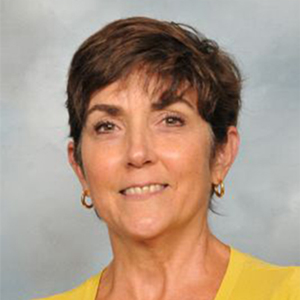
Mrs. Eleanor Cannon currently teaches a senior level history elective and is a field hockey coach at St. John School, in Houston. She has taught for over 20 years in independent schools.
She has used our digital Oil-101 series for a senior elective course that she designed called the “History, Geopolitics and Economics of Energy. To date it has been offered to 200 St. John's School seniors.
A Virginia native, Eleanor graduated with a Bachelor of Arts from Duke University and received a Master of Arts from the University of Houston.
She is married to E. Philip Kenyon Jr. and the proud mother of two sons.
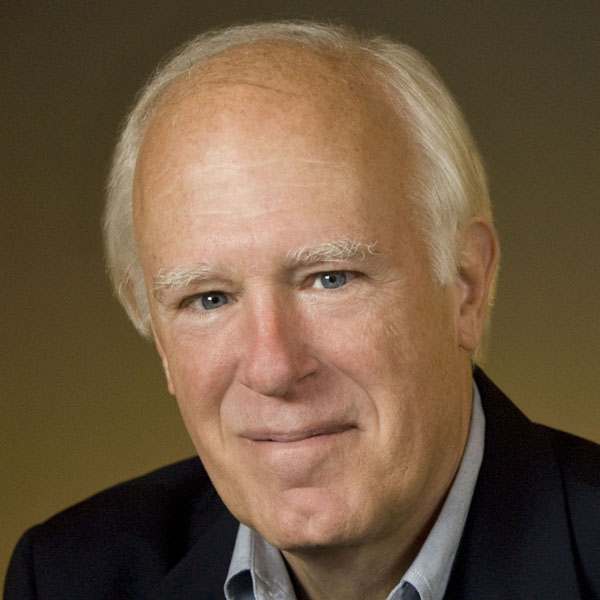 Marty Stetzer – President of EKT Interactive
Marty Stetzer – President of EKT InteractivePresident of EKT Interactive in Houston; and producer of our mobile-ready energy series describing How the industry works.
It covers Oil & Gas, Power and Renewables.In parallel with a 25-year energy career, Marty spent 15 years providing custom blended and e-learning training programs to a variety of technical audiences.
He has global upstream and downstream operations management experience with Schlumberger, Superior Oil-Mobil and Exxon, and was a director in the energy consulting practice at PwC.
Marty has his Bachelors Degree in Mechanical Engineering from Kettering Institute and a MBA from Carnegie Mellon.
Relevant Links
Energy 101 – eLearning for the Energy Industry
Transcript
Marty:
Hi everyone, and welcome to Drill Down, our podcast channel that today will give you an insight on a really unique application of our Oil 101 series. I’m Marty, president of EKT Interactive in Houston, and I’ll be your host today. I’m speaking with Mrs. Eleanor Cannon. She’s the upper school history teacher at St. John’s School here in Houston. She has closely integrated our Oil 101 videos into a course to help it make it relevant. Eleanor, thanks so much for taking the time today,
Eleanor:
Marty, thank you so much for having me. I’m really looking forward to talking with you about how I’ve been using Oil 101.
Marty:
Can you tell our listeners your background and explain what motivated you to design the course and especially look for digital energy training for your students? Where did this idea come from?
Eleanor:
Well, I’m really fortunate, first of all, to be able to teach history to high school students. I get to talk about my discipline that I love all day long and share my passion for history with smart young people. I’m also fortunate I also get to coach. I coach field hockey, which is a great and entirely gratifying different way to get to know young people. And for the last 12 years, I’ve been teaching US history to juniors in high school at St. John’s School, and I have been asked to consider creating a senior elective. The goal of our senior electives is to expose students to wide variety of disciplines and all sorts of content that your standard US history class doesn’t cover.
And I was fortunate and kind of a coincidence, my son had just begun college in Virginia and he was taking a history class called Tobacco. And in the context of the state of Virginia, tobacco was a foundational commodity. He was enjoying his class so much and it was such a cool way to learn that I began to consider that model for my new course. My husband and I were driving around Houston one day and chatting about that and he said, “Well, what if you did a history of Houston via commodity? What would it be?” And we just looked at each other and simultaneously said oil. So that was the beginning of the idea of the class.
And so as I started to develop it, I talked to as many people as I could in the St. John’s community and in Houston about anything and everything related to the oil industry. I quickly decided that my go-to textbook was going to need to be Daniel Yergin’s “The Prize”. And I built the basic structure for the course that’s reflected in the official name. This is not my choice, but the official name of the course is “the History, Geopolitics and Economics of Energy”. I was hoping for Oil or maybe BTUs or something catchy, but college counselors want colleges to be able to recognize what students are actually doing in class. But I structured the course around those three components. A section of the course was going to be the history, a section was going to be the geopolitics which both of which I’m very comfortable with, and the third was going to be the economics, which was a little bit of a heavier lift for me.
But I was really excited about this concept. I started teaching the class for the first time in the fall of 2019. Some things were great off the bat. We started every single class, we still do, with a student reporting on what the West Texas intermediate price is and sharing some item that explains the change that day. And that has opened up all kinds of conversations. Early on we end up tackling and explaining bears and bulls. My first year in 2019, we spent a lot of time talking about the Aramco IPO.
But what was lacking in the class, obviously, it was very obvious from the beginning, was I really lacked any knowledge of how the oil industry actually worked. So I spent a lot of time sort of looking around for materials for me, for my own education, and fortunately came upon Oil 101 and took the class and found it tremendously helpful. When I started to plan the second go round in the spring of 2020… I can’t remember where this idea came from, but it occurred to me that I might reach out to EKT and find out if I might be able to access some of those materials for my students. And that’s the beginning of our collaboration, which has been incredibly helpful and fruitful for me and my students.
Marty:
Thanks so much, Eleanor, for that compliment. With that in mind, especially your extensive background in researching material, how many students have taken the course?
Eleanor:
So since the spring of 2020, roughly 200 students have used the digital Oil 101 materials, which is a pretty significant number – given that our class sizes tend to be quite small. And also the course has gone from one section of semester now to two, in part because students enjoy it so much and learn so much. So that’s a not inconsequential number over the last couple of years.
Marty:
So remind me, is that juniors and seniors, or just seniors?
Eleanor:
Actually, this elective is only open to seniors. The juniors take US History.
Marty:
So as you went through this, what made Oil 101 a good fit for your classroom? And is it leading to follow up discussions or projects or people looking for other material?
Eleanor:
Well, from the beginning it really helped my students understand the oil industry, the value chain. For example, this section on LNG was incredibly helpful when we were talking about the geopolitical aspect of the course and thinking the conversation we had in class in the fall when what was going to happen with gas supply coming out of Russia given the war in Ukraine and sort of what’s Europe going to do, we were able to have a really informed conversation about potential of LNG. They also understood though the barriers, the cost of building liquefaction, and transportation.
So every conversation we have is informed. So not only have they gotten this basic understanding of how the oil industry works, but it has really enriched all the conversations we have beyond that. So in the history section of the course, when we’re talking about Titusville, we can begin to understand… They’ve already taken the Oil 101. And the entire upstream, midstream, downstream, there’s this moment of like, “Oh, so that’s where that came from.” And so particularly in the economics component of a class, we’ve been able to use the marketing and information in downstream about margins and capital, the difference between upstream capital risk. That’s just made the class… It’s just taken it and enriched it and taken it to a level of reality in the real world that has been tremendously, tremendously helpful.
Marty:
So what is some of the feedback that students have given you about the course?
Eleanor:
So one of the things that has, I think, struck all of us, including me at the beginning, part of it is the reality that any industry is as complicated. And Oil 101 makes it very simple and very clear although that many moving parts and that many different parts, again different components of the industry, I think really surprises them. They absolutely appreciate feeling knowledgeable. I think a lot of times high school students, particularly seniors, feel like they are being talked down to or they’re being treated as if they don’t know anything. And I think they find it really empowering to be able to say, “No, I really know how the oil industry works.” And there have been two things that students have come back to, alums have come back and talked to me about. One is how many of them have been able to use the information they gained in my course and from Oil 101 in particular, in talking in interviews for jobs, whether they’re internships in energy.
I’ve had a couple of students who’ve gone on and study petroleum engineering. I have one student at Brown University who’s doing some entrepreneurial work in the hydrogen space, all of which was inspired by what they learned in the class. So that is amazing. When a 22-year old can say to me, “I nailed that interview because what I’ve learned,” that’s fantastic, from being a teacher. I mean, what more do you want?
Maybe on a little bit more personal level, I’ve had a lot of students tell me that it’s enriched their conversations at home. A good number of my students have some connection, their families have some connection to the oil or energy industries and my students feel confident now or interested at least even interested in talking to their parents about what they do. And if any of you have ever had a high school student who the report you get back every day, “What did you do at school today?”
Nothing,” which certainly has been my experience often, I found a lot of people said that this class, because it’s practical and it’s real and it’s something that they can talk to in a very concrete way with their families, that it’s sparked a lot of conversations, which is a completely unanticipated benefit. And I think that’s fantastic.
Marty:
That is sure interesting to hear that coming out of a student community. Really enriches what we’ve been trying to do, so that’s just been awesome. I thought of something recently. Did this approach help you prepare for when you shifted to remote training during COVID?
Eleanor:
The timing of this was really interesting. My students actually used this… It was one of the last things we did in the spring of ’20 before everything fell apart. And then actually, I’m fortunate in that our school we were back in person by the time we were using it a second time. So I never really had the opportunity to use this in a fully remote setting. But one of the things I’ve realized is when there’s a kid who’s out sick, we’ve got people traveling through athletics, or also a lot of times seniors in both semesters are traveling to look at colleges and it’s the ideal tool for them to not fall behind and to stay on top of the class. If they miss a day where it’s discussion based or something, an interactive experiment in class, that’s very hard for them to make up. But Oil 101 is the perfect tool when you can’t be there.
And so I certainly hope we never have another situation where we have to teach remotely, but I now know that that can be my go-to tool in dealing with a situation like that, that that’s where I can start and spend… One of the biggest challenges was adapting curriculum to going online. I now know that I’ve got something that could give me kind of soft start where they could do that work and then I would have time to figure out how to change and adapt. So it’s a great gift and a little bit of sense of security that I have that in my back pocket at all times.
Marty:
Let me try another tact. When you discuss the course with other administrators or teachers, what do they think about this partnership and especially your class?
Eleanor:
It is a conversation stopper. I do a lot of professional development now thanks to technologies like Zoom from people from all over the country and I’ll introduce myself by saying I teach US history and a senior energy elective, and I get a lot of very curious follow up questions. And as far as I’ve been able to determine I don’t think there’s another high school class like this, certainly not one that I’ve been able to find. And believe me, I looked. When I had to create the class from scratch, I did a deep dive looking for anything that I might be able to piggyback off of. I have some data on that. When I proposed this class, the college counselors were curious, and so they did a lot of investigating and couldn’t find anything that really was similar to this class.
And one other data point, one of my former students is now in the Cox Business School at SMU. She attended a speaker series that involved Christian Wallace, who wrote the article for Texas Monthly called Boomtown and then turned it into a podcast, which we also use in my class. When she met him, she mentioned that she listened to parts of his podcast in her high school energy class. And here’s a guy who is in that space, thinks about energy, interacts with all kinds of people, and he was stunned. And so I think that piece has been really interesting.
And then as far as administrators, all of my administrative team here at school is incredibly supportive. As I mentioned, I’ve gone from teaching at one section a semester to two sections a semester, effectively doubling the number of students who are taking it. And when I explain to them what a key role Oil 101 has played and the support from EKT, they are just thrilled. It’s very unusual, at least in my world of independent schools, for there to be partnerships with business or people in the “real world.” To be able to have forged this real partnership that supports me as a teacher has just been invaluable.
Marty:
Eleanor, thank you so much for your insights. You’ve been a real innovator in energy education and we are happy you selected us to be part of it. Any other thoughts, stories, ideas you would like to share?
Eleanor:
I think one of the things that’s been most interesting to me is learning the stories from my students once they learn really what energy in the oil industry is like, where they see the connections with their families and their family history. It’s the knowledge they get from my course and the course materials from EKT has really helped them look at their families in a different way. I have them do a creative writing piece where they talk about… It’s an oil biography. They use the knowledge they’ve gotten in the class to take another look at their family. I’ve had people find old Super 8 movies of their grandparents and working as a roughneck back in the ’50s and ’60s. It’s just been really cool to see the many, many ways and the many levels in which energy and particularly the oil industry impacts people’s lives in this area.
And then also, I’m really looking forward to… I’m going to spend some time this summer, every semester I kind of revamp the course, reevaluate things that are working well and things that I want to add. I’m really looking forward to adding some of the EKT segments on Power, the Power 101. Not surprising, students are really interested in whatever happened to them in February of ’21 and I’d love to bulk up that part of the course with, again, some real substance from EKT. I also have my students, their final project is a oil public policy memo to a leader of a nation trying to comply with the Paris Accords. I’m really looking forward to incorporating some of the units from EKT on renewables that will give, again, more substance and heft to their research. I think that’s going to be a tremendous thing for helping them be better writers and thinkers about the energy transition.
Marty:
The energy transition is, we all know, is a very hot topic. So if there’s any way we can help bring your students into the real new world with Power 101, we will certainly do that.
Eleanor:
No, I’m really looking forward to our continued partnership and opening up new ways to learn from my students. Thank you so much.
Marty:
Well, my thanks to everyone for listening. Our company name, EKT Interactive stands for Energy Knowledge Transfer. We digitally capture the extensive knowledge of industry experts to pass it on to the next generation in a convenient format. If you are a professional or a student that is interested in the oil, gas, power, or renewables industry and want to quickly learn how that industry works, check out our digital on demand training series at www.ektinteractive.com.
© 2023 EKT Interactive.
The post Promoting Digital Energy Education in The Classroom with Eleanor Cannon appeared first on EKT Interactive.
25 May 2023, 6:30 pm - 45 minutesApril 2023 Oil Market Analysis – Commodity Research Group

Here is the latest oil market analysis from Commodity Research Group.
These podcast episodes are based on research published in the CRG Monthly Outlook report – a premium research product covering energy, metals, and currencies.
The full report is relied on by hedge funds and trading groups to provide actionable insight into commodity markets and is available on a subscription basis.
Be sure to contact CRG to learn more about their research services.
Contact Commodity Research GroupAbout CRG
Commodity Research Group (CRG) is an independent research consultancy specializing in base and precious metals, as well energy products. The Group provides research and general price analysis for these markets, along with advice to companies seeking to construct hedging strategies.
In this podcast, oil market experts Andrew Lebow and Jim Colburn discuss key fundamental forces driving oil prices in both the futures and options markets.
About the Experts
Andrew Lebow
 Andrew Lebow has been involved in the energy derivative area since 1980. He began his career with Shearson Lehman Brothers where he worked in the initial formulation and marketing of the NYMEX WTI crude contract in 1983 as well as the NYMEX gasoline contract in 1985.
Andrew Lebow has been involved in the energy derivative area since 1980. He began his career with Shearson Lehman Brothers where he worked in the initial formulation and marketing of the NYMEX WTI crude contract in 1983 as well as the NYMEX gasoline contract in 1985.Mr. Lebow has appeared before the State Government of Alaska as well as the State Department of Defense to discuss hedging techniques. Mr. Lebow is also well known as a market analyst and is quoted frequently in the financial press. He has appeared on television on CNBC, NBC, CNN, CBS, and PBS. Mr. Lebow holds a BA from Lafayette College and an MBA from the Kellogg School of Management at Northwestern University.
James Colburn
 Jim Colburn is a futures and options professional with 30 years of wide ranging experience in commodity markets. For much of his career, at Man Financial (1989-2011) and Jefferies LLC (2012-2013), Mr. Colburn worked with major integrated oil companies, hedge funds, pension funds and other entities to develop market hedging and trading strategies.
Jim Colburn is a futures and options professional with 30 years of wide ranging experience in commodity markets. For much of his career, at Man Financial (1989-2011) and Jefferies LLC (2012-2013), Mr. Colburn worked with major integrated oil companies, hedge funds, pension funds and other entities to develop market hedging and trading strategies.He has conducted trading, hedging and risk management workshops in energy markets worldwide.
Mr. Colburn is a published author on options trading, hedging, market making and risk management. In 1986, while at the New York Mercantile Exchange, Mr. Colburn helped develop new markets in energy option contracts by educating the oil industry, banks, floor traders and brokers, worldwide.
Links:
Commodity Research Group Podcast
Sponsors:
EKT Interactive Podcast Network
Energy 101 – eLearning for the Energy Industry
The post April 2023 Oil Market Analysis – Commodity Research Group appeared first on EKT Interactive.
20 April 2023, 7:18 pm - 18 minutes 35 secondsLong Duration Energy Storage with Diane Cherry and Marty Stetzer
Thanks for listening to the EKT Interactive Energy Podcast Network.
In this 18 minute episode, Marty Stetzer (EKT Interactive in Houston) talks with Diane Cherry. Prior to starting her own consulting firm, Diane worked for more than 20 years at senior levels in the energy and environmental fields.
We met virtually through the Energy and Utilities Network. In January 2023, she posted a blog describing new technology developments for long-duration energy storage.
Our Energy Storage Management digital training module was built in 2020. Diane's conversation will help our listeners get an update on this important topic.
About the Expert
Diane Cherry

Diane Cherry is the Principal of Diane Cherry Consulting, a woman-owned small business providing environmental and energy consulting services primarily in the Southeastern United States.
Her firm provides services in business development, policy and regulatory analysis, and communications.
She has extensive experience in public policy and communications around energy markets, technology, education, and finance. She regularly speaks at renewable energy conferences in the Southeast and nationally.
Prior to starting her own consulting firm, Diane worked for more than 20 years in the energy and environmental fields.
Diane holds a Master's Degree in Energy Policy from the Harvard Kennedy School, and a Bachelor's Degree in Economics from the University of Virginia.
 Marty Stetzer – President of EKT Interactive
Marty Stetzer – President of EKT InteractivePresident of EKTinteractive in Houston; and producer of our mobile-ready energy series describing How the industry works.
It covers Power, Renewables and Oil & Gas.
In parallel with a 25-year energy career, Marty spent 15 years providing custom blended and e-learning training programs to a variety of technical audiences.
He has global upstream and downstream operations management experience with Schlumberger, Superior Oil-Mobil and Exxon, and was a director in the energy consulting practice at PwC.
Marty has his Bachelors Degree in Mechanical Engineering from Kettering Institute and a MBA from Carnegie Mellon.
Relevant Links
Energy 101 – eLearning for the Energy Industry
DOE – Long Duration Storage Shot
Referenced LDES Companies:
Transcript
Marty: Hi everyone and welcome to Drill Down – our podcast channel that now brings you insights on the clean energy transition.
I'm Marty Stetzer President of EKTinteractive, in Houston, and I will be your host today. And I'll be speaking with DianeCherry in Raleigh, North Carolina.
She has extensive experience in policy and communications on environmental issues, energy markets, clean energy technology, and renewable energy finance throughout the US.
Diane and I met virtually through the Energy and Utilities Network. In January she posted a blog describing new technology developments for long-duration energy storage.
We built a digital training module on Energy Storage Management in 2020. I thought it would be valuable for our listeners to get an update on this important topic.
Marty:
Diane, thanks so much for taking the time today.
Diane:
Thanks Marty good to be here
Marty:
Diane, as a policy and clean energy veteran, can you tell us about your consulting firm, give our listeners your (brief) resume and tell us what got you interested in this specific topic?
Diane:
I have worked in the energy and environmental policy space for more than 25 years as a regulator, at the state, and as an advocate. I have had my own clean energy consulting firm the past five years I work at theintersection of policy and regulation, communications and business development. My clients run the gamut of clean energy developers, advocates, renewable energy finance providers, city government, and higher education.
Marty:
Thanks Diane.. let's get started.
When we put our module together in 2020, the primary battery design for storage to support intermittent wind and solar only had a maximum four hours of duration. What is the business case for longer-duration options?
Diane:
Long duration energy storage defined by the U.S. Department of Energy (DOE) as a system that can store energyfor more than 10 hours — is the lynchpin for solving the intermittency issues with renewable energy production. Whileshorter-duration energy storage (usually 1- 4 hours) can support some renewable energy generation intermittency, as more and more renewables are added to the grid, long duration energy storage is needed to store energy to be dispatched duringlong stretches when solar or wind are not producing.
A primary goal of long duration energy storage is to ensure that renewable energy can be stored when it is generated and deployed to meet sustained energy demand later. In this way, it supports the increased penetration of clean energy technologies; it also gives grid operators added flexibility to balance supply and demand, enables grid resilience, and enables costly transmission and distribution infrastructure upgrades to be deferred.
The trick remains storing energy at scale.
Marty:
In 2020, Pumped Storage Hydro was the prevalent long-duration storage option which could provide 10 or more hours of backup. What is prompting the need for more options?
Diane:
Just to be clear, pumped hydro storage is the only LDES technology deployed on a large scale and will continue to dominate the market until 2030.
Development of a long duration energy storage market has received federal government support through ARPA-E, the research and investment arm of the Department of Energy (DOE). The DOE also launched the Long Duration Storage Shot in July 2021 to reduce long duration energy storage costs by 90 percent (for systems that deliver energy ten or more hours) by 2030. Long duration energy storage will help the U.S. achieve a net-zero carbon grid a target the Biden administration has set for 2050 by dispatching low carbon power when needed and accelerating the retirement of gas peaker plants.
At the state level, California approved $126 million in incentives to demonstrate new long-duration storage technologies. New York State awarded US $16.6 million to five long-duration energy storage projects.
Marty:
Thanks Diane , Sure is a lot of money being spent!
Can you tell our listeners what the promising LDES options are being considered?
Diane:
Long duration energy technologies can be divided into electrochemical energy storage, thermal energy storage, flow batteries, and mechanical energy storage. And right now there are different commercial scale foreach of these categories. I'll just hit a couple of them.
Electrochemical LDES: Companies in this space are trying to find the sweet spot of lithium-ion batteries for long-duration energy storage. Earlier this year, an eight-hour duration lithium-ion battery project became the first long-duration energy storage resource selected by a group of non-profit energy suppliers in California.
Flow Batteries: Flow batteries are a subcategory of electrochemical energy storage that operate on the idea ofincorporating liquid electrolyte to function as a source of direct current electricity that runs through an inverter forconversion to alternating current power. Flow battery performance does not degrade, which is why there are fewerlimitations on use cases. While this continual performance stands out compared to lithium-ion batteries, which exhibit greater performance degradation if they are cycled multiple times per day or used for different applications, the only current commercial flow batteries are based on vanadium and zinc.
Marty:
A two part question [A] what programs around the world and in the US are relevant, and is the US ahead of, or behind, other countries in long duration storage development? [B] Can you cite specific projects that are under way around the world?
Diane:
Couple of things that are making the U.S. a key place for long duration energy storage right now. First theInflation Reduction Act allows energy project developers to benefit from a broad, bankable, and stable tax incentive scheme e.g. extending these credits out by 10 years to bring long-term certainty; making these credits technology agnostic and including storage.
The long duration energy storage ecosystem has been in labs and research institutes, and they are still at a very earlystage. While the national labs are integral to the U.S. scientific expertise true for energy storage we lag behind China, South Korea, Japan in research funding.
On the whole, the sector has struggled to go from promising ideas to promising businesses and funding has been a keyreason. Technology developers will struggle to scale cost-effectively before 2030.
Clear geographical disparities exist in the development of the LDES market.
- For the Asia Pacific region, the deployment of vanadium redox flow batteries and compressed air energy storage has accelerated rapidly in China, which has been largely driven by strong policy supp The world's largest redox flow battery energy storage system, 100 megawatts (MW)/400 megawatt hours (MWh),connected to the grid in Dalian, China.
- Most European countries have been less enthusiastic. The UK Government has been an exemption, as it explores the role long duration energy technologies have to offer, while actively seeking to support industry players.
Turning now to the US
- One of the biggest LDES electrochemical hopes is Form Energy, an alternative battery player. The company has raised more than $800 million for an iron-air battery that it says can store 100 hours of energy at system costs that are competitive with conventional power plants. Form's first battery manufacturing facility is set forWeirton, West Virginia, with finished batteries expected in 2024. Another is
- Xcel Energy Minnesota that will deploy a 10 MW/1,000 MWh multi-day storage
system at the Sherburne County Generating Station in Becker, Minnesota. Xcel
Energy Colorado will deploy a 10 MW/1,000 MWh multi-day storage system at the Comanche Generating Station in Pueblo, Colorado. Both projects are expected to come online as early as 2025 and are subject toregulatory approvals in their respective states. Finally
- Technology company Third Derivative has backed half a dozen flow battery startups, including new generations of flow chemistry that use organic compounds and alternative materials to vanadium.
Marty:
Diane, with all this happening where do you see storage developments going in the future?
Diane:
While there is no clear LDES favorite yet, the winner will ultimately target different value propositions that puts it in a different league than li-ion. Because li-ion has such a strong hold on the energy storage market, a leadingLDES technology must demonstrate more than just a marginal benefit over li-ion. By targeting a niche application,LDES technology providers will more easily be able to demonstrate its distinct value to the market.
Marty:
Are there any industry leaders in the LDES field that our listeners should start to follow?
- Form Energy is one in the US that I've already discussed.
- Highview Power Storage (UK) Liquid-air energy storage solution that can deliver enough electricity to power over 200,000 homes for 12 hours in two weeks.
- Energy Dome (Italy) Energy Dome is an Italian startup that has developed a new technology for large-scale and long-duration energy storage. Their patented technology is based on a thermodynamic process that uses CO2 to preserve electricity at a low cost and with unparalleled round-trip efficiency.
- Antora Energy- US The startup utilizes zero-carbon heat and electricity to electrify heavy industry. Antora Energy has developed low-cost, long-term energy storage by storing heat energy in extremely cheap raw materials.
Marty:
Diane, thanks so much for your insights! They will sure be valuable to your audience and our own community of 8,500 EKT interactive followers.
Are there other resources available on this topic that you can recommend to our listeners?
Diane: Sure. At our website, dianecherryconsulting.com, has three blogs that describe the different categories of long duration energy storage and the use case for each category. So, I recommend everyone visit our website. Also, you can email me at [email protected] and I’ll be happy to answer any question.
Marty: Thanks to everyone for listening Our company name EKT interactive stands for energy knowledge, transfer digitally capturing the extensive knowledge of clean energy industry experts, like Diane.
If you are a professional that is new to the oil, gas, power or renewables industry, and want to quickly learn How that industry works check out our digital on-demand training series at www.ektinteractive.com.
© 2023 EKT Interactive.
The post Long Duration Energy Storage with Diane Cherry and Marty Stetzer appeared first on EKT Interactive.
29 March 2023, 6:28 pm - 18 minutes 34 secondsLong Duration Energy Storage with Diane Cherry
Thanks for listening to the EKT Interactive Energy Podcast Network.
Listen on Spotify
In this 18 minute episode, Marty Stetzer (EKT Interactive in Houston) talks with Diane Cherry. Prior to starting her own consulting firm, Diane worked for more than 20 years at senior levels in the energy and environmental fields.
We met virtually through the Energy and Utilities Network. In January 2023, she posted a blog describing new technology developments for long-duration energy storage.
Our Energy Storage Management digital training module was built in 2020. Diane's conversation will help our listeners get an update on this important topic.
About the Expert
Diane Cherry

Diane Cherry is the Principal of Diane Cherry Consulting, a woman-owned small business providing environmental and energy consulting services primarily in the Southeastern United States.
Her firm provides services in business development, policy and regulatory analysis, and communications.
She has extensive experience in public policy and communications around energy markets, technology, education, and finance. She regularly speaks at renewable energy conferences in the Southeast and nationally.
Prior to starting her own consulting firm, Diane worked for more than 20 years in the energy and environmental fields.
Diane holds a Master's Degree in Energy Policy from the Harvard Kennedy School, and a Bachelor's Degree in Economics from the University of Virginia.
 Marty Stetzer – President of EKT Interactive
Marty Stetzer – President of EKT InteractivePresident of EKTinteractive in Houston; and producer of our mobile-ready energy series describing How the industry works.
It covers Power, Renewables and Oil & Gas.
In parallel with a 25-year energy career, Marty spent 15 years providing custom blended and e-learning training programs to a variety of technical audiences.
He has global upstream and downstream operations management experience with Schlumberger, Superior Oil-Mobil and Exxon, and was a director in the energy consulting practice at PwC.
Marty has his Bachelors Degree in Mechanical Engineering from Kettering Institute and a MBA from Carnegie Mellon.
Relevant Links
Energy 101 – eLearning for the Energy Industry
DOE – Long Duration Storage Shot
Referenced LDES Companies:
Transcript
Marty: Hi everyone and welcome to Drill Down – our podcast channel that now brings you insights on the clean energy transition.
I'm Marty Stetzer President of EKTinteractive, in Houston, and I will be your host today. And I'll be speaking with DianeCherry in Raleigh, North Carolina.
She has extensive experience in policy and communications on environmental issues, energy markets, clean energy technology, and renewable energy finance throughout the US.
Diane and I met virtually through the Energy and Utilities Network. In January she posted a blog describing new technology developments for long-duration energy storage.
We built a digital training module on Energy Storage Management in 2020. I thought it would be valuable for our listeners to get an update on this important topic.
Marty:
Diane, thanks so much for taking the time today.
Diane:
Thanks Marty good to be here
Marty:
Diane, as a policy and clean energy veteran, can you tell us about your consulting firm, give our listeners your (brief) resume and tell us what got you interested in this specific topic?
Diane:
I have worked in the energy and environmental policy space for more than 25 years as a regulator, at the state, and as an advocate. I have had my own clean energy consulting firm the past five years I work at theintersection of policy and regulation, communications and business development. My clients run the gamut of clean energy developers, advocates, renewable energy finance providers, city government, and higher education.
Marty:
Thanks Diane.. let's get started.
When we put our module together in 2020, the primary battery design for storage to support intermittent wind and solar only had a maximum four hours of duration. What is the business case for longer-duration options?
Diane:
Long duration energy storage defined by the U.S. Department of Energy (DOE) as a system that can store energyfor more than 10 hours — is the lynchpin for solving the intermittency issues with renewable energy production. Whileshorter-duration energy storage (usually 1- 4 hours) can support some renewable energy generation intermittency, as more and more renewables are added to the grid, long duration energy storage is needed to store energy to be dispatched duringlong stretches when solar or wind are not producing.
A primary goal of long duration energy storage is to ensure that renewable energy can be stored when it is generated and deployed to meet sustained energy demand later. In this way, it supports the increased penetration of clean energy technologies; it also gives grid operators added flexibility to balance supply and demand, enables grid resilience, and enables costly transmission and distribution infrastructure upgrades to be deferred.
The trick remains storing energy at scale.
Marty:
In 2020, Pumped Storage Hydro was the prevalent long-duration storage option which could provide 10 or more hours of backup. What is prompting the need for more options?
Diane:
Just to be clear, pumped hydro storage is the only LDES technology deployed on a large scale and will continue to dominate the market until 2030.
Development of a long duration energy storage market has received federal government support through ARPA-E, the research and investment arm of the Department of Energy (DOE). The DOE also launched the Long Duration Storage Shot in July 2021 to reduce long duration energy storage costs by 90 percent (for systems that deliver energy ten or more hours) by 2030. Long duration energy storage will help the U.S. achieve a net-zero carbon grid a target the Biden administration has set for 2050 by dispatching low carbon power when needed and accelerating the retirement of gas peaker plants.
At the state level, California approved $126 million in incentives to demonstrate new long-duration storage technologies. New York State awarded US $16.6 million to five long-duration energy storage projects.
Marty:
Thanks Diane , Sure is a lot of money being spent!
Can you tell our listeners what the promising LDES options are being considered?
Diane:
Long duration energy technologies can be divided into electrochemical energy storage, thermal energy storage, flow batteries, and mechanical energy storage. And right now there are different commercial scale foreach of these categories. I'll just hit a couple of them.
Electrochemical LDES: Companies in this space are trying to find the sweet spot of lithium-ion batteries for long-duration energy storage. Earlier this year, an eight-hour duration lithium-ion battery project became the first long-duration energy storage resource selected by a group of non-profit energy suppliers in California.
Flow Batteries: Flow batteries are a subcategory of electrochemical energy storage that operate on the idea ofincorporating liquid electrolyte to function as a source of direct current electricity that runs through an inverter forconversion to alternating current power. Flow battery performance does not degrade, which is why there are fewerlimitations on use cases. While this continual performance stands out compared to lithium-ion batteries, which exhibit greater performance degradation if they are cycled multiple times per day or used for different applications, the only current commercial flow batteries are based on vanadium and zinc.
Marty:
A two part question [A] what programs around the world and in the US are relevant, and is the US ahead of, or behind, other countries in long duration storage development? [B] Can you cite specific projects that are under way around the world?
Diane:
Couple of things that are making the U.S. a key place for long duration energy storage right now. First theInflation Reduction Act allows energy project developers to benefit from a broad, bankable, and stable tax incentive scheme e.g. extending these credits out by 10 years to bring long-term certainty; making these credits technology agnostic and including storage.
The long duration energy storage ecosystem has been in labs and research institutes, and they are still at a very earlystage. While the national labs are integral to the U.S. scientific expertise true for energy storage we lag behind China, South Korea, Japan in research funding.
On the whole, the sector has struggled to go from promising ideas to promising businesses and funding has been a keyreason. Technology developers will struggle to scale cost-effectively before 2030.
Clear geographical disparities exist in the development of the LDES market.
- For the Asia Pacific region, the deployment of vanadium redox flow batteries and compressed air energy storage has accelerated rapidly in China, which has been largely driven by strong policy supp The world's largest redox flow battery energy storage system, 100 megawatts (MW)/400 megawatt hours (MWh),connected to the grid in Dalian, China.
- Most European countries have been less enthusiastic. The UK Government has been an exemption, as it explores the role long duration energy technologies have to offer, while actively seeking to support industry players.
Turning now to the US
- One of the biggest LDES electrochemical hopes is Form Energy, an alternative battery player. The company has raised more than $800 million for an iron-air battery that it says can store 100 hours of energy at system costs that are competitive with conventional power plants. Form's first battery manufacturing facility is set forWeirton, West Virginia, with finished batteries expected in 2024. Another is
- Xcel Energy Minnesota that will deploy a 10 MW/1,000 MWh multi-day storage
system at the Sherburne County Generating Station in Becker, Minnesota. Xcel
Energy Colorado will deploy a 10 MW/1,000 MWh multi-day storage system at the Comanche Generating Station in Pueblo, Colorado. Both projects are expected to come online as early as 2025 and are subject toregulatory approvals in their respective states. Finally
- Technology company Third Derivative has backed half a dozen flow battery startups, including new generations of flow chemistry that use organic compounds and alternative materials to vanadium.
Marty:
Diane, with all this happening where do you see storage developments going in the future?
Diane:
While there is no clear LDES favorite yet, the winner will ultimately target different value propositions that puts it in a different league than li-ion. Because li-ion has such a strong hold on the energy storage market, a leadingLDES technology must demonstrate more than just a marginal benefit over li-ion. By targeting a niche application,LDES technology providers will more easily be able to demonstrate its distinct value to the market.
Marty:
Are there any industry leaders in the LDES field that our listeners should start to follow?
- Form Energy is one in the US that I've already discussed.
- Highview Power Storage (UK) Liquid-air energy storage solution that can deliver enough electricity to power over 200,000 homes for 12 hours in two weeks.
- Energy Dome (Italy) Energy Dome is an Italian startup that has developed a new technology for large-scale and long-duration energy storage. Their patented technology is based on a thermodynamic process that uses CO2 to preserve electricity at a low cost and with unparalleled round-trip efficiency.
- Antora Energy- US The startup utilizes zero-carbon heat and electricity to electrify heavy industry. Antora Energy has developed low-cost, long-term energy storage by storing heat energy in extremely cheap raw materials.
Marty:
Diane, thanks so much for your insights! They will sure be valuable to your audience and our own community of 8,500 EKT interactive followers.
Are there other resources available on this topic that you can recommend to our listeners?
Diane: Sure. At our website, dianecherryconsulting.com, has three blogs that describe the different categories of long duration energy storage and the use case for each category. So, I recommend everyone visit our website. Also, you can email me at [email protected] and I’ll be happy to answer any question.
Marty: Thanks to everyone for listening Our company name EKT interactive stands for energy knowledge, transfer digitally capturing the extensive knowledge of clean energy industry experts, like Diane.
If you are a professional that is new to the oil, gas, power or renewables industry, and want to quickly learn How that industry works check out our digital on-demand training series at www.ektinteractive.com.
© 2023 EKT Interactive.
The post Long Duration Energy Storage with Diane Cherry appeared first on EKT Interactive.
19 March 2023, 6:23 am - 46 minutes 55 secondsFebruary 2023 Oil Market Analysis – Commodity Research Group

Here is the latest oil market analysis from Commodity Research Group.
These podcast episodes are based on research published in the CRG Monthly Outlook report – a premium research product covering energy, metals, and currencies.
The full report is relied on by hedge funds and trading groups to provide actionable insight into commodity markets and is available on a subscription basis.
Be sure to contact CRG to learn more about their research services.
Contact Commodity Research GroupAbout CRG
Commodity Research Group (CRG) is an independent research consultancy specializing in base and precious metals, as well energy products. The Group provides research and general price analysis for these markets, along with advice to companies seeking to construct hedging strategies.
In this podcast, oil market experts Andrew Lebow and Jim Colburn discuss key fundamental forces driving oil prices in both the futures and options markets.
About the Experts
Andrew Lebow
 Andrew Lebow has been involved in the energy derivative area since 1980. He began his career with Shearson Lehman Brothers where he worked in the initial formulation and marketing of the NYMEX WTI crude contract in 1983 as well as the NYMEX gasoline contract in 1985.
Andrew Lebow has been involved in the energy derivative area since 1980. He began his career with Shearson Lehman Brothers where he worked in the initial formulation and marketing of the NYMEX WTI crude contract in 1983 as well as the NYMEX gasoline contract in 1985.Mr. Lebow has appeared before the State Government of Alaska as well as the State Department of Defense to discuss hedging techniques. Mr. Lebow is also well known as a market analyst and is quoted frequently in the financial press. He has appeared on television on CNBC, NBC, CNN, CBS, and PBS. Mr. Lebow holds a BA from Lafayette College and an MBA from the Kellogg School of Management at Northwestern University.
James Colburn
 Jim Colburn is a futures and options professional with 30 years of wide ranging experience in commodity markets. For much of his career, at Man Financial (1989-2011) and Jefferies LLC (2012-2013), Mr. Colburn worked with major integrated oil companies, hedge funds, pension funds and other entities to develop market hedging and trading strategies.
Jim Colburn is a futures and options professional with 30 years of wide ranging experience in commodity markets. For much of his career, at Man Financial (1989-2011) and Jefferies LLC (2012-2013), Mr. Colburn worked with major integrated oil companies, hedge funds, pension funds and other entities to develop market hedging and trading strategies.He has conducted trading, hedging and risk management workshops in energy markets worldwide.
Mr. Colburn is a published author on options trading, hedging, market making and risk management. In 1986, while at the New York Mercantile Exchange, Mr. Colburn helped develop new markets in energy option contracts by educating the oil industry, banks, floor traders and brokers, worldwide.
Links:
Commodity Research Group Podcast
Sponsors:
EKT Interactive Podcast Network
Energy 101 – eLearning for the Energy Industry
The post February 2023 Oil Market Analysis – Commodity Research Group appeared first on EKT Interactive.
17 February 2023, 8:33 pm - 39 minutes 54 secondsJanuary 2023 Oil Market Analysis – Commodity Research Group

Here is the latest oil market analysis from Commodity Research Group.
These podcast episodes are based on research published in the CRG Monthly Outlook report – a premium research product covering energy, metals, and currencies.
The full report is relied on by hedge funds and trading groups to provide actionable insight into commodity markets and is available on a subscription basis.
Be sure to contact CRG to learn more about their research services.
Contact Commodity Research GroupAbout CRG
Commodity Research Group (CRG) is an independent research consultancy specializing in base and precious metals, as well energy products. The Group provides research and general price analysis for these markets, along with advice to companies seeking to construct hedging strategies.
In this podcast, oil market experts Andrew Lebow and Jim Colburn discuss key fundamental forces driving oil prices in both the futures and options markets.
About the Experts
Andrew Lebow
 Andrew Lebow has been involved in the energy derivative area since 1980. He began his career with Shearson Lehman Brothers where he worked in the initial formulation and marketing of the NYMEX WTI crude contract in 1983 as well as the NYMEX gasoline contract in 1985.
Andrew Lebow has been involved in the energy derivative area since 1980. He began his career with Shearson Lehman Brothers where he worked in the initial formulation and marketing of the NYMEX WTI crude contract in 1983 as well as the NYMEX gasoline contract in 1985.Mr. Lebow has appeared before the State Government of Alaska as well as the State Department of Defense to discuss hedging techniques. Mr. Lebow is also well known as a market analyst and is quoted frequently in the financial press. He has appeared on television on CNBC, NBC, CNN, CBS, and PBS. Mr. Lebow holds a BA from Lafayette College and an MBA from the Kellogg School of Management at Northwestern University.
James Colburn
 Jim Colburn is a futures and options professional with 30 years of wide ranging experience in commodity markets. For much of his career, at Man Financial (1989-2011) and Jefferies LLC (2012-2013), Mr. Colburn worked with major integrated oil companies, hedge funds, pension funds and other entities to develop market hedging and trading strategies.
Jim Colburn is a futures and options professional with 30 years of wide ranging experience in commodity markets. For much of his career, at Man Financial (1989-2011) and Jefferies LLC (2012-2013), Mr. Colburn worked with major integrated oil companies, hedge funds, pension funds and other entities to develop market hedging and trading strategies.He has conducted trading, hedging and risk management workshops in energy markets worldwide.
Mr. Colburn is a published author on options trading, hedging, market making and risk management. In 1986, while at the New York Mercantile Exchange, Mr. Colburn helped develop new markets in energy option contracts by educating the oil industry, banks, floor traders and brokers, worldwide.
Links:
Commodity Research Group Podcast
Sponsors:
EKT Interactive Podcast Network
Energy 101 – eLearning for the Energy Industry
The post January 2023 Oil Market Analysis – Commodity Research Group appeared first on EKT Interactive.
20 January 2023, 12:55 am - 47 minutes 57 secondsDecember 2022 Oil Market Analysis – Commodity Research Group

Here is the latest oil market analysis from Commodity Research Group.
These podcast episodes are based on research published in the CRG Monthly Outlook report – a premium research product covering energy, metals, and currencies.
The full report is relied on by hedge funds and trading groups to provide actionable insight into commodity markets and is available on a subscription basis.
Be sure to contact CRG to learn more about their research services.
Contact Commodity Research GroupAbout CRG
Commodity Research Group (CRG) is an independent research consultancy specializing in base and precious metals, as well energy products. The Group provides research and general price analysis for these markets, along with advice to companies seeking to construct hedging strategies.
In this podcast, oil market experts Andrew Lebow and Jim Colburn discuss key fundamental forces driving oil prices in both the futures and options markets.
About the Experts
Andrew Lebow
 Andrew Lebow has been involved in the energy derivative area since 1980. He began his career with Shearson Lehman Brothers where he worked in the initial formulation and marketing of the NYMEX WTI crude contract in 1983 as well as the NYMEX gasoline contract in 1985.
Andrew Lebow has been involved in the energy derivative area since 1980. He began his career with Shearson Lehman Brothers where he worked in the initial formulation and marketing of the NYMEX WTI crude contract in 1983 as well as the NYMEX gasoline contract in 1985.Mr. Lebow has appeared before the State Government of Alaska as well as the State Department of Defense to discuss hedging techniques. Mr. Lebow is also well known as a market analyst and is quoted frequently in the financial press. He has appeared on television on CNBC, NBC, CNN, CBS, and PBS. Mr. Lebow holds a BA from Lafayette College and an MBA from the Kellogg School of Management at Northwestern University.
James Colburn
 Jim Colburn is a futures and options professional with 30 years of wide ranging experience in commodity markets. For much of his career, at Man Financial (1989-2011) and Jefferies LLC (2012-2013), Mr. Colburn worked with major integrated oil companies, hedge funds, pension funds and other entities to develop market hedging and trading strategies.
Jim Colburn is a futures and options professional with 30 years of wide ranging experience in commodity markets. For much of his career, at Man Financial (1989-2011) and Jefferies LLC (2012-2013), Mr. Colburn worked with major integrated oil companies, hedge funds, pension funds and other entities to develop market hedging and trading strategies.He has conducted trading, hedging and risk management workshops in energy markets worldwide.
Mr. Colburn is a published author on options trading, hedging, market making and risk management. In 1986, while at the New York Mercantile Exchange, Mr. Colburn helped develop new markets in energy option contracts by educating the oil industry, banks, floor traders and brokers, worldwide.
Links:
Commodity Research Group Podcast
Sponsors:
EKT Interactive Podcast Network
Energy 101 – eLearning for the Energy Industry
The post December 2022 Oil Market Analysis – Commodity Research Group appeared first on EKT Interactive.
16 December 2022, 12:35 am - More Episodes? Get the App
Your feedback is valuable to us. Should you encounter any bugs, glitches, lack of functionality or other problems, please email us on [email protected] or join Moon.FM Telegram Group where you can talk directly to the dev team who are happy to answer any queries.
 Oil 101 - An Introduction to Oil and Gas
Oil 101 - An Introduction to Oil and Gas
 Capitol Crude: The US Oil Policy Podcast
Capitol Crude: The US Oil Policy Podcast
 Oil Markets
Oil Markets
 Texas Oil and Gas Podcast
Texas Oil and Gas Podcast
 Oil and Gas Industry Leaders Podcast
Oil and Gas Industry Leaders Podcast
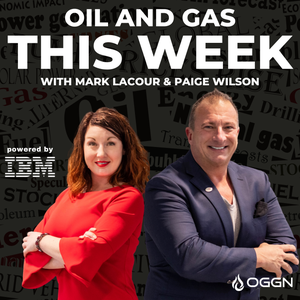 Oil and Gas This Week Podcast
Oil and Gas This Week Podcast